Ethical Meat Consumption: The Benefits of Choosing Locally Raised Beef
The Rise of Ethical Meat: Why Transparency and Trust Matter More Than Ever
There’s no denying it. We (the consumers) care about our food now more than ever. Take our grandparents for example. Most if not all of them confidently purchased groceries from their local supermarkets without questioning the food’s integrity.
Nowadays we want to know everything about our food—where it was grown or raised, how it was processed, and what it includes. Perhaps our shift toward awareness is due to general suspicion and distrust. How could we not crave more information in an age of secret ingredients, shady sourcing, and health-damaging preservatives, fillers, and more?
Defining Ethical Meat Consumption
Ethical meat consumption refers to purchasing meat from animals raised in humane conditions; this includes grass-fed, free-range, and pasture-raised meats. The trend stems from concern over how our food choices impact our health, the environment, and animal welfare. All good things, but we could argue that ethical meat’s rise in popularity is about more than humane, sustainable practices.
Building Trust Through Transparency
Knowing how meat was raised, processed, and distributed creates trust. (Mysteries are fun, but not with our food.) Ethical meat promises stringent standards such as ensuring the animals have access to natural diets and open spaces. Along with that, ethical meat offers more essential nutrients like omega-3 fatty acids. It also has a smaller ecological footprint and promotes biodiversity and soil health. Good for the environment, good for our well-being—a win-win situation.
The Importance of Sourcing
Sourcing is the real selling point. Ethical meat (overall) prioritizes transparency. Sure, we care about animal welfare and responsible environmental stewardship, but knowing how meat was raised answers our questions and takes away our food concerns. We can feel confident in our meat.
Before diving more into ethically raised beef and why locally-raised beef is important, let’s explore the pros and cons of production claims.
Understanding Production Claims
Not all ethical meat is equal in quality. Understanding labels like “grass-fed” and “organic” is crucial for making informed decisions. For example, “grass-fed” is different from “pasture-raised.” “Grass-fed” describes what the animal ate for most of their life while “pasture-raised” describes what the animal ate and where they ate it. An animal could be grass-fed in a feedlot.
The Role of Regulation
Most production claims are not regulated, so producers can use labels without disclosing all the details. This again highlights the importance of sourcing. Ethical meat consumption is less about labels and more about the meat’s origins and handling. The term “organic” is the most regulated. To be certified as organic, meat must come from animals raised without synthetic hormones or antibiotics and given organic feed. USDA certifications also help guarantee quality.
The Case for Locally-Raised Beef
If ethical meat is truly about origin, we must talk about locally-raised beef. We define “locally-raised beef” as beef from cattle born and raised in a singular location or region. Benefits of locally-raised beef include:
Fresher, Tastier Beef
Unlike mass-produced beef that often travels hundreds or even thousands of miles to reach supermarket shelves, locally-raised beef typically undergoes shorter transportation times, ensuring it arrives at your plate at the peak of freshness.
Supports Local Ranchers and Communities
Buying locally-raised beef keeps small-scale farmers and ranchers in operation. These producers are often deeply ingrained in their communities, contributing to the vibrancy and resilience of rural areas. Investing in their products sustains livelihoods, preserves agricultural heritage, and fosters a stronger sense of community. Also, the direct relationship between consumers and local agriculture promotes transparency and accountability, allowing for greater traceability and assurance of ethical and sustainable practices.
Environmental Stewardship
Opting for locally-raised beef can significantly reduce the carbon footprint associated with food production and distribution. By shortening the supply chain and minimizing transportation distances, locally-raised beef helps mitigate greenhouse gas emissions and reduce reliance on fossil fuels. Additionally, many local producers prioritize sustainable farming practices such as rotational grazing, regenerative agriculture, and water conservation, further minimizing their environmental impact and promoting ecosystem health.
Animal Welfare and Quality Assurance
Many small-scale producers prioritize humane treatment and ensure their animals are raised in low-stress environments with access to pasture, natural feed, and clean water. The commitment to animal welfare aligns with ethical considerations and contributes to the superior quality and flavor of the meat.
Ethically-raised beef and locally-raised beef go hand-in-hand. That’s why everyone here at Lazy T Ranch goes above and beyond to care for cattle, have sustainable ranching practices, and pour into local communities. We believe in the power of quality sourcing!
Our cattle spend their lives on our Wyoming ranch, graze on open pastures, drink fresh water from our springs, and experience low stress and minimal transportation. Our beef is all-natural with no added hormones or preservatives.
To recap . . .
What defines ethical meat consumption, and why is it important for consumers to consider it?
Ethical meat consumption involves choosing meat from animals raised under humane conditions. It also emphasizes the importance of sustainable practices, local economies, environmental stewardship, and nutrition.
Ethical meat offers many benefits, the greatest of all being the value shift toward integrity and transparency. Purchasing ethical meat ensures it stays available!
How does Lazy T Ranch prioritize animal welfare and sustainable practices in raising cattle?
Our cattle enjoy natural, low-stress lives here at our ranch, graze on open grasslands, and drink from fresh springs. Their welfare is our number one priority. We grow our own feed, which lends to sustainability, and we’re careful not to overgraze our pastures.
How does the ranch-to-table approach at Lazy T Ranch enhance transparency and trust with consumers?
We limit the number of hands that touch our beef. Our cattle go from our ranch to a local feedlot where they finish on a carefully monitored diet. From there, they go to the processor, then to our freezers, then to you. Ranch-to-table decreases transportation, the time spent in a freezer, and the risk of contamination. Also, we’re honest about our beef program and want our customers to know everything about the beef on their plates.
The benefits of ethically-raised and locally-raised beef extend beyond the culinary realm. They contribute to environmental and animal welfare, local economies, and nutrition. In an age where the integrity of our food matters more than ever, embracing ethical, locally-raised beef is not just a culinary choice but a vote for a more sustainable and flavorful future.
Make the ethical choice for your plate. Explore our beef offerings.


